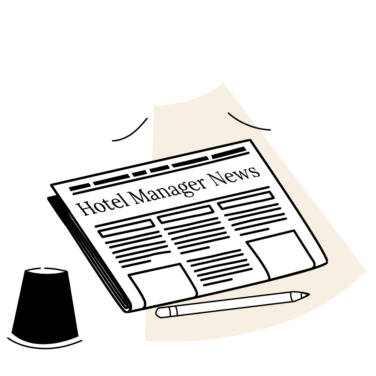Customer Relationship Management, or CRM, is a valuable tool for any business. But for hotels, it can be especially helpful in a number of ways.
In this guide, you'll learn 12 CRM strategies that hotel marketers can use to grow profits, book more rooms, improve their marketing results, automate their business, and more.
We'll explain each strategy in detail and provide tips on how to implement them. So whether you're just starting out with CRM or you're looking for new ways to improve your hotel's marketing efforts, this guide is for you.
What Are the Benefits of Using a Hotel CRM?
There are many benefits of using a hotel CRM, such as:
1. Increased profits – A hotel CRM can help you track your guests’ spending patterns and preferences so that you can target them with personalized marketing offers that encourage them to book more rooms and spend more money during their stay.
2. More efficient marketing – By automating your marketing tasks with a CRM, you can save time and improve your marketing results.
3. Improved customer service – A hotel CRM can help you track guest feedback and complaints so that you can address any issues promptly and ensure that your guests have a positive experience during their stay. This is key for any hotel reputation management strategy.
4. Greater insight into your business – With all the data that a hotel CRM collects, you can gain a much deeper understanding of your business operations and identify areas where you can make improvements. These insights can help you understand how your tracking towards your hotel management KPIs.
12 Hotel CRM Strategies
There are 12 CRM strategies that every hotel marketer should be aware of. Here's a look at each one:
1. Create a customer loyalty program.
2. Personalize your marketing emails.
3. Segment your email lists.
4. Use dynamic content in your marketing emails.
5. Send targeted offers to guests who have booked with you before.
6. Use retargeting to reach out to past guests.
7. Reach out to guests on social media platforms.
8. Try targeted advertising on social media platforms.
9. Collect customer feedback and use it to improve your marketing efforts.
10. Analyze your website data to see how guests are interacting with your site.
11. Use customer relationship management software to automate your marketing efforts.
12. Track your marketing results and adjust your strategy accordingly
How Can I Implement a CRM Strategy in My Hotel Business?
So now that you know what CRM is and the different strategies you can use, how do you actually put them into practice in your hotel business?
Each CRM strategy will be slightly different, but there are some basic steps you can take to implement them all. Here are some tips:
1. Choose the right hotel CRM tool for your needs. There are many different CRM tools available, so make sure you select one that meets the specific needs of your hotel business. It should be easy to use, so you and your team can quickly and easily track customer data.
2. Train your staff on how to use the tool. Make sure everyone who needs access to the CRM tool is properly trained in how to use it. This includes front-line staff who interact with customers, as well as managers who need access to customer data for analysis and reporting.
3. Integrate the CRM tool with your other systems. Make sure the CRM tool can integrate with your other systems, such as your booking software, marketing automation tools, and accounting software. This will make it easier to track customer data and improve communication between different departments.
Common Hotel CRM Mistakes To Avoid
If you're looking to improve your hotel's CRM strategy, it's important to avoid making some common mistakes. Here are four of the most common:
1. Not segmenting your database properly. When you have a large database of customers, it's important to break them down into groups based on their purchase history, interests, and other relevant factors. This will allow you to target them with more relevant and effective marketing messages.
2. Ignoring customer feedback. Don't forget that one of the benefits of CRM is that it gives you a 360-degree view of your customers. This means you can track their feedback and use it to improve your services and products.
3. Not using automation tools. Automation tools can save you a lot of time and energy when it comes to managing your CRM system. Make sure you're taking advantage of the latest technologies to make your job easier.
4. Failing to integrate your CRM with other systems. Make sure your CRM is integrated with your website, booking engine, and other key systems so you can get a complete view of each customer's interactions with your hotel.
Conclusion
So there you have it: 12 CRM strategies that every hotel marketer needs to know. Implementing even a few of these strategies can help you grow profits, book more rooms, improve your marketing results, automate your business, and more.
Ready to get started? Pick a strategy and start putting it into action today. And be sure to come back and visit us often for updates and more helpful tips and advice.
Conclusion
Now that you understand the 12 CRM strategies, it's time to put them into action!
Each of these strategies can help hotel marketers and hotel managers improve their marketing results, book more rooms, and grow their profits. But it's important to tailor each strategy to your specific business and goals.
So get started using these strategies today, and see how they can help improve your hotel's bottom line.



